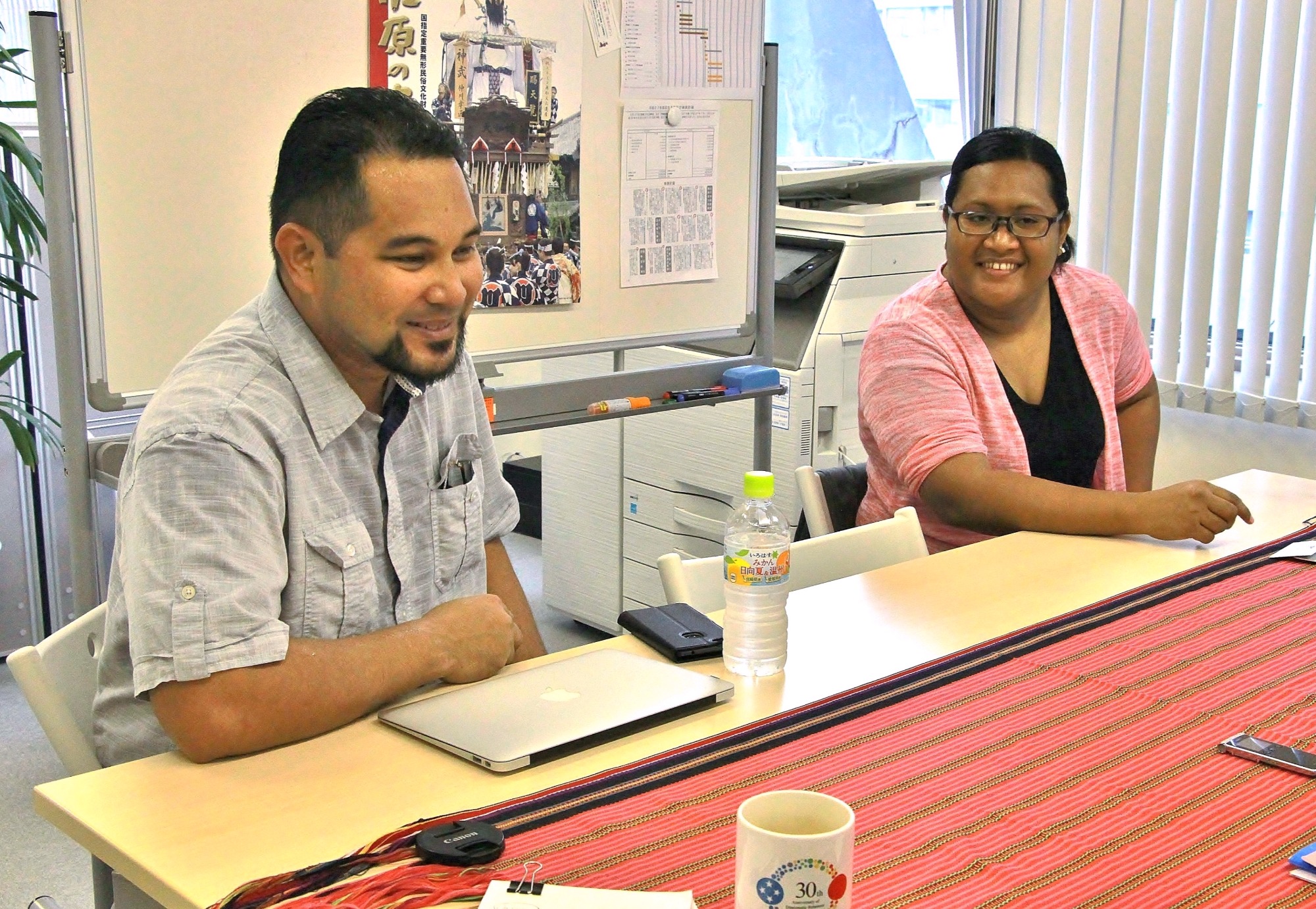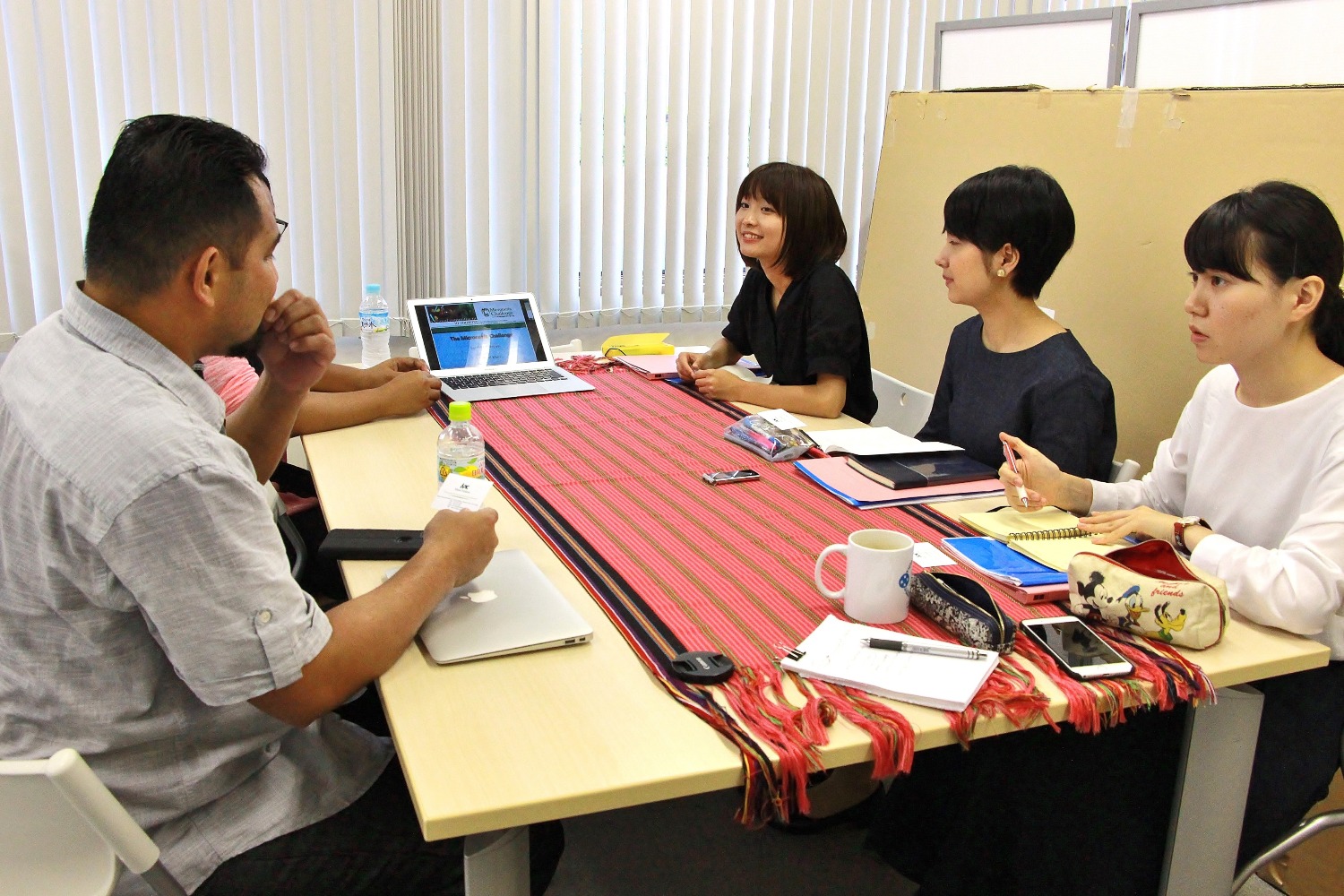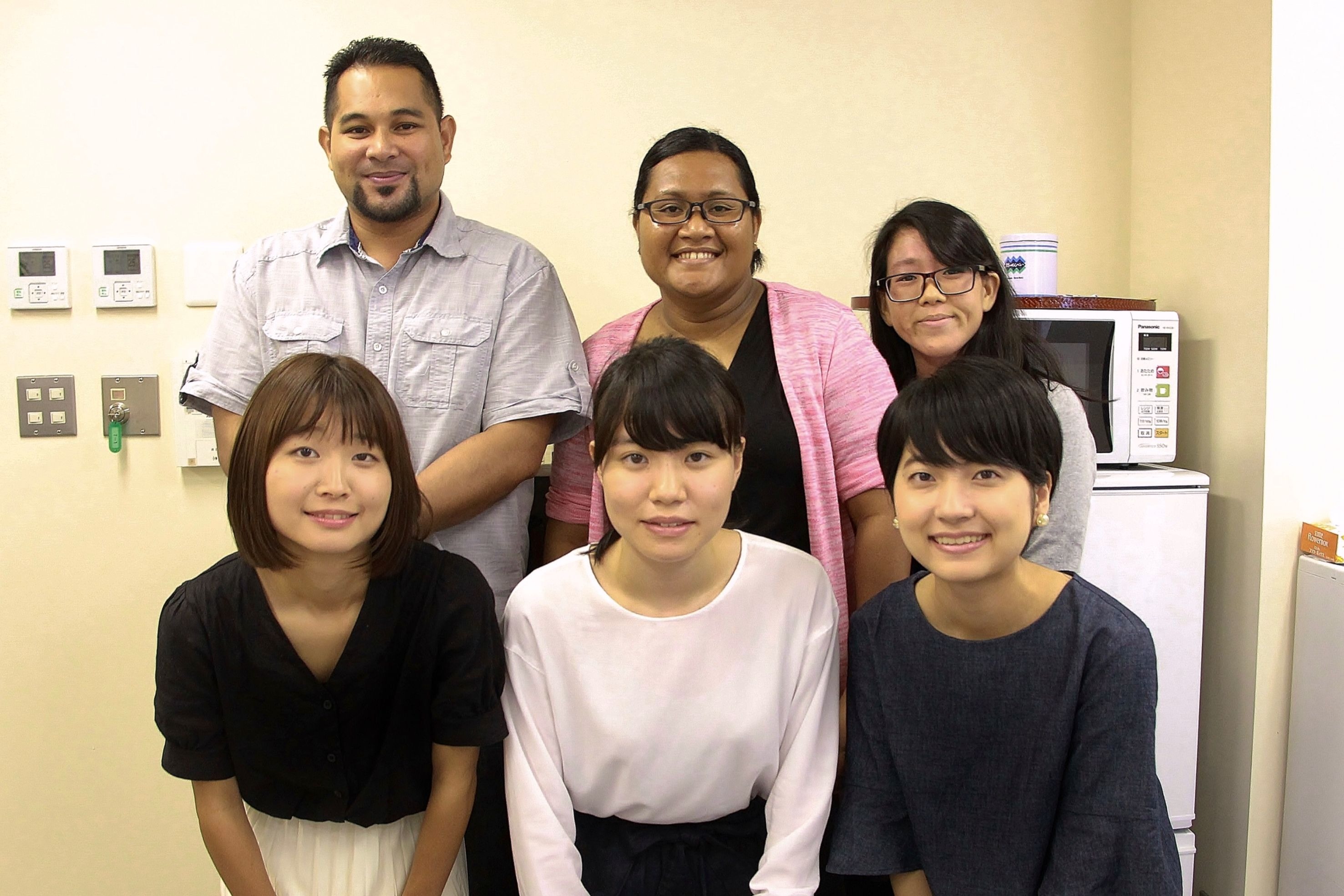Interview: APIC-MCT Exchange Students Bradford and Bertha

(Bradford (left) and Bertha (right))
Mr. Bradford Mori
Bradford is from Chuuk State, Federated States of Micronesia. He worked for ten years in the Chuuk State Environmental Protection Department as the technical cooperative program manager. He also participated in the Micronesia Challenge. He is currently obtaining his master’s degree at Sophia University, and writing his thesis on political policies based on local communities, in addition to Micronesia’s environmental problems.
Ms. Bertha Reyuw
Bertha is from Yapp State, Federated States of Micronesia. She obtained her bachelors in Arts and Environment at the University of the South Pacific. Through her work at the MCT, she became involved in the Micronesia Challenge. She is currently in the process of obtaining her masters degree at Sophia University, writing her thesis on women’s roles in regards to Micronesia’s environmental problems.
※The Micronesia Challenge is an initiative started in 2006 in conjunction with the three countries of the Republic of Palau, the Federated States of Micronesia, Marshall Islands, as well the regions of Guam and the Commonwealth of the North Marianas Islands. The aim is to protect the diversity of Micronesia’s living things, and to develop a plan for the sustainable use of natural resources in the region. The initiative set the year 2020 as its goal for each country’s funded target amount, and entrusted MCT to the management of said funds.
Bertha talked about her experiences in Yapp for this interview. Micronesia is putting a lot of effort into bringing up and educating young talent through scholarships and internships. Environmental preservation is important for a nation with an abundance of resources such as Micronesia. The Micronesia Challenge is divided into three sections: ocean, land, and socio-economics. In the ocean division, divers explore the ocean taking note of all types of fish and coral, recording their observations. In the land division, professionals decide what areas should be protected, and proceed with conservation activities while consulting the local inhabitants. In the socio-economics division, professions determine if the rules set up in the region are effective or not, and ask for feedback from local residents.
Bradford talked about his experiences in Chuuk. He was involved in planning the map plotting the progress of the conservation activities in protected areas. The intent of the project was to have the local community correctly understand the current situation of the conservation activities by sharing with them the collected information. The 2015 typhoon brought an increase of ocean temperature and damaged much of the coral reef, and destroyed houses and crops on the shoreline. In this case the locals wanted to fully know the extent of the damage. Additionally, MCT has a limit to its funds and so they are working with JICA and other organizations to carry out its activities.
Both students mentioned that it is imperative that the local community understand what the current situation is in regards to Micronesia’s environmental problems. As a way to do this, there are classes at local schools that focus on the environment. The interviewee’s desire for residents to understand the importance of preserving the environment through their activities was quite evident. They seemed to be thinking routinely about their future and how to use their experience at Sophia after graduating and returning home.

Bradford There is a lot of information on different sides concerning environmental problems, so we are holding environmental conferences and exchanging information. These conferences give Micronesia a chance to let other countries know what kinds of problems Micronesia is currently facing.
Bertha In order to get countries to become interested in Micronesia’s environmental problems, we are using social media outlets such as Facebook and websites to spread information. This also lets us take video of our activities, and aids us in raising funds for our cause.
Q2. Is Micronesia receiving help from other countries?
Bradford We are putting efforts into proposing cases of environmental problems in Micronesia to help raise support funds. However, a lot of the money we receive is from our government or state government, and most of the time the money doesn’t get to the towns and villages that need it. I believe that we need a more bottom-top approach to the problem, and we must think of what is best for each community.
Q3. What can we do in our daily lives to help the environment?
Bradford In Micronesia, we are actively using the 2 R’s (reduce, reuse), such as taking old clothes and turning them into shopping bags to be sold. Even just swapping out plastic bags for your own eco-bag helps save the environment.
Bertha Local movements are just as important as nation-wide ones. Yapp was the first place in Micronesia to ban the use of plastic bags, so now at every shop you must bring your own bag. Additionally, to get the younger generations interested in the environment, it is important to provide educational classes at schools. I also think that it is most important for each individual to have the conviction that they must take it upon themselves to keep the towns clean.

(Bottom left: Interns Mikako Furukawa, Maho Furukawa, Umeka Yoshinaga)
WHAT'S NEW
- 2025.5.15 UPDATE
EVENTS
"417th Lecture Meeting Regarding Global Issues"
- 2025.4.17 UPDATE
EVENTS
"416th Lecture Meeting Regarding Global Issues"
- 2025.3.13 UPDATE
EVENTS
"415th Lecture Meeting Regarding Global Issues"
- 2025.2.20 UPDATE
EVENTS
"414th Lecture Meeting Regarding Global Issues"
- 2025.1.16 UPDATE
EVENTS
"413th Lecture Meeting Regarding Global Issues"
- 2025.1.12 UPDATE
PROJECTS
"Barbados A Walk Through History Part 15"
- 2024.12.19 UPDATE
EVENTS
"412th Lecture Meeting Regarding Global Issues"
- 2024.12.4 UPDATE
PROJECTS
"Barbados A Walk Through History Part 14"
- 2024.11.21 UPDATE
EVENTS
"411th Lecture Meeting Regarding Global Issues"
- 2024.10.17 UPDATE
EVENTS
"410th Lecture Meeting Regarding Global Issues"




